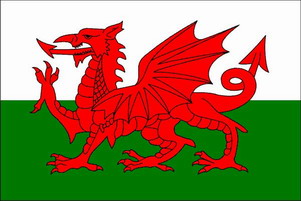Login form
Customs of Wales
Marriage and Family
 In the past, a young man would signal his interest in a woman by carving a 'love spoon' for her, in anticipation of courtship. Today these elaborate love spoons are found in craft shops throughout
In the past, a young man would signal his interest in a woman by carving a 'love spoon' for her, in anticipation of courtship. Today these elaborate love spoons are found in craft shops throughout
Traditionally, Welsh families have been close, with many of the extended family living nearby and grandparents sometimes living in the same house. The nominal head of the household is the father, but the mother plays an equally important role in family affairs. Many women now work outside the home. Single-parent families are becoming more common, and divorce is increasing. More than two-thirds of houses are owner-occupied, higher than in
Eating
Welsh lamb—served with mint sauce—and salmon are famous, and there are some traditional Welsh dishes such as cawl (a soup made with vegetables, particularly leeks), bara lawr (bread made from seaweed and oatmeal), and bara brith (currant cake). However, the Welsh mainly eat a variety of foods common throughout the world. In recent years there has been an increase in health consciousness with regard to diet.
Most people eat cereal, toast and marmalade, and tea or coffee for breakfast. The midday meal is usually called dinner, sometimes lunch. The main meal, often consisting of meat or fish with vegetables, might be in the middle of the day or in the evening. On Sundays dinner is traditionally served in the middle of the day, and it often includes roasted lamb with mint sauce and vegetables. The evening meal is called supper, tea, or sometimes dinner. Tea can also refer to the traditional ritual of taking tea, cakes, and scones at around 4 pm. Table manners are similar to those in other parts of the
Socializing
A firm handshake is usual when first being introduced, but is often dispensed with thereafter, unless one has not seen the person for some time. When meeting for the first time, a common greeting is “How d’you do?” or “Pleased to meet you.” On other occasions, “How are you?” may be used. Good friends, especially young people, use “Hello” and “Hi” to greet each other. Women who are close friends may kiss each other once lightly on the cheek; sometimes men also kiss women this way. Many women remain seated when being introduced and shaking hands. First names are widely used.
The Welsh enjoy visiting friends and neighbors, and often call without an invitation. If invited for a meal, however, it is considered impolite to arrive late.
Workingmen’s clubs are an important social base in many communities, and pubs (public houses, which serve alcoholic drinks and often food) are also popular places for relaxation. Full membership in workingmen’s clubs is restricted to men; women can be associate members.
Recreation
The national sport is Rugby Union, known as “football,” and international matches played at
Watching television is one of the main recreational activities. There are cinemas and arts centers in most large towns. The Royal National Eisteddfod (an arts festival and social gathering) is held every year during the first week of August, alternately in the north and south of
Holidays and Celebrations
Saint David’s Day (1 March), which celebrates the nation’s patron saint, is not an official holiday but is a day of special dinners and other events. On Saint David’s Day, people wear a leek or daffodil, which together form the national emblem, on their clothing. In 1959 Queen Elizabeth II gave
Source: Encarta Interactive World Atlas

